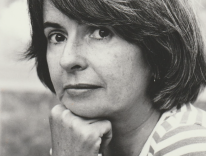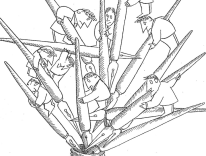Few people have done more to bring Catholic values into the civic life of their community than the former New York City Schools Chancellor Frank Macchiarola, who died Tuesday at the age of 71. Macchiarola was a problem-solver who took on the toughest issues facing his city, whether it was near-bankruptcy in the mid-1970s or the failures of its school system. He headed the law school at Yeshiva University. Then he headed St. Francis College in Brooklyn. He was a leader of the city's business community. Macchiarola's signature achievement was to serve with distinction as chancellor of the nation's largest public school system as the city was still staggering from the fiscal crisis. One secret of his success in that position, in my observation, was that he brought with him some of the fundamental values of Catholic schooling, especially an emphasis on discipline and order. Many Catholic school-trained educators followed him into the public school system and brought those same instincts with them. As administrators, they have played an important if unnoticed role in improving the system, part of Macchiarola's legacy.Anyone who knew Frank Macchiarola knew he was a man of faith. Joe Berger notes that well in an excellent obituary in today's Times, closing it with Macchiarola's reflection on what it takes to be a successful school leader:
Macchiarola's signature achievement was to serve with distinction as chancellor of the nation's largest public school system as the city was still staggering from the fiscal crisis. One secret of his success in that position, in my observation, was that he brought with him some of the fundamental values of Catholic schooling, especially an emphasis on discipline and order. Many Catholic school-trained educators followed him into the public school system and brought those same instincts with them. As administrators, they have played an important if unnoticed role in improving the system, part of Macchiarola's legacy.Anyone who knew Frank Macchiarola knew he was a man of faith. Joe Berger notes that well in an excellent obituary in today's Times, closing it with Macchiarola's reflection on what it takes to be a successful school leader:
As chancellor I constantly prayed not to confuse myself with God, he said. They need to find a chancellor committed to providing leadership but who never shuts the door to someones ideas, or to the people who harangue and torture you. Otherwise, you end up defending something just because its yours.
Macchiarola could become frustrated with the institutional church - he was not one to defend an institution "just because it's yours." But he and his wife Mary always served the church. In his later years, for example, he took part in efforts to save Catholic schools in his home Diocese of Brooklyn. Macchiarola's faith showed through in his ethic of service. Reflecting on his role as president of St. Francis College, he told Peg Steinfels in a 1997 Commonweal interview:
In life youre either a policeman or a social worker. I am a social worker. I keep telling people we cant stop doing good because there are people who take advantage of us. We do good because we are required to do good. That is our obligation. Were not being nice. Were not being liberal. Were not being tolerant. Were being who we are. Who we are requires us to do that. Its a two-step process. First decide who you are and then you have to act in consistency with that. As an institution we have to internalize that. We have to promote that.


